Prometheus Review
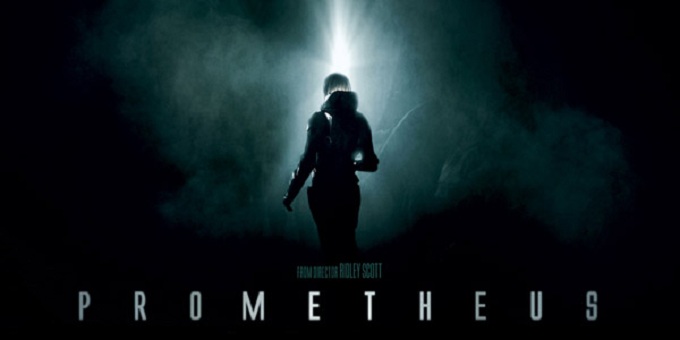
The Plot:
At the end of the 21st century, two enthusiastic scientists lead an expedition to a distant alien world, convinced it may hold the key to the mystery of life on earth. However what they find, along with the motives of their crewmates and the powerful corporation they work for, may not be what they expect.
The Good:
With Prometheus director Ridley Scott returns to his most successful cinematic territory, science fiction. He’s responsible for genre classics like Alien & Bladerunner, so it’s little surprise that Prometheus boasts strong future-noir visuals. He’s also had no trouble assembling a well-respected cast.
Michael Fassbender is simply outstanding as David, a morally ambiguous android with a penchant for Peter O’Toole impersonations. As in X-Men First Class and Shame, Fassbender commands the screen with an alarming degree of charisma. Co-star Noomi Rapace also displays a growing grasp of the English language in a performance much improved on her negligible presence in Sherlock Holmes: A Game Of Shadows.
Hard-core fans of the Alien franchise will at least be pleased to see it return to its roots in a prequel that partially answers lingering questions from the 1979 classic and at least echoes its iconic visuals.
The Bad:
In truth it would be almost impossible for any film to live up to the incredible levels of hype and fan expectation that have been carefully cultivated by the marketing campaign for Prometheus. Add to that the critical reverence for Scott’s past sci-fi efforts and it’s a recipe for inevitable disappointment.
Though Prometheus does show early signs of ambitious promise, it ultimately sacrifices intelligent storytelling and grand themes in favour of increasingly chaotic action sequences. Screenwriter Damon Lindelof previously wrote lacklustre blockbuster Cowboys & Aliens and contributed to the indecipherable confusion of TV series Lost. Sadly many of the same flaws are evident in Prometheus.
As the film progresses it’s hard to avoid noticing the growing list of obvious plot holes and an overall feeling of disappointing predictability. It doesn’t help that the film’s countless trailers and viral marketing materials actually managed to give away a surprising amount of the film’s end game.
Even a potentially good cast can’t make up for the film’s other deficiencies. Unfortunately with the exception of Fassbender’s exemplary performance as David, the rest of the crew of Prometheus are simple stereotypes lacking both personality and narrative substance.
Though the film boasts accomplished visual effects and effective 3D, that success is undermined by one very bad example of ‘old man make-up’ and a surprising lack of the terrifying creature effects that have memorably defined the franchise.
The Ugly Truth:
Prometheus will only leave you satisfied if you manage to avoid challenging it with unrealistic expectations of excellence. It’s a watchable sci-fi summer blockbuster at best, not the work of instant classic genius that optimistic critics and fans were hoping for. The film may be a little more rewarding for earnest fans of the franchise or Fassbender, but it lacks the fantastic fear of the terrifying original Alien.
Snow White and The Huntsman Review
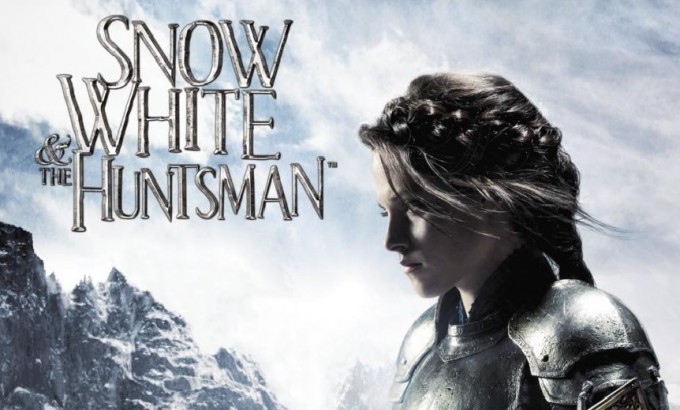
The Plot:
A wicked Queen seizes power in an enchanted kingdom only to be warned by a magic mirror that the one threat to her rule is a beautiful young girl called Snow White. With the unlikely help of seven dwarves and rough edged Huntsman, Snow White must defeat monsters and evil minions on her quest to save the kingdom.
The Good:
Hot on the heels of family friendly Snow White adaptation Mirror Mirror, this darker big screen version boasts sumptuous and impressive visuals. First time director Rupert Sanders succeeds in bringing a world full of trolls, fairies and dark magic to life. Easily the film’s greatest asset, it’s beautiful and sinister by equal turns.
Beautiful and sinister are both adjectives equally applicable to Charlize Theron in her role as Ravenna the evil Queen obsessed with youth, beauty and power. She does well to add some fragility and emotional depth to the iconic fairy-tale villainess. It’s unusual to see a performer even try to make a maniacal tyrant seem vulnerable or almost sympathetic.
Hunky man mountain Chris Hemsworth, Twilight starlet Kristen Stewart and a host of accomplished supporting character actors like Bob Hoskins, Eddie Marsan & Ian McShane all round out a credible cast.
The Bad:
With a run time creeping over two hours there’s a disappointing lack of momentum for a film that’s supposed to be a thrilling adventures packed with desperate escapes and urgent quests. Audiences who have grown up with this classic fable will likely find much of the film’s lethargic exposition fairly redundant. Particularly some of the lengthy early stages of the film could have been pruned away to leave something more dynamic.
Kristen Stewart has an army of devoted fans, but she also has her eager critics. No doubt they will find ammunition to attack this performance, between her cut glass English accent and earnest speeches. Some will deride her for being too well groomed, others for being too sullen or grungy. You get the feeling she just can’t win. This isn’t a performance that will convert her doubters, but it will at least please her loyal Twilight fanbase.
Chris Hemsworth has his own enthusiastic fans, but unfortunately his mud-stained Huntsman is less readily likeable than his Marvel Superhero Thor and struggles with a drunken Scottish accent. Secondary romantic lead Sam Claflin also struggles to impose himself with limited screen time as Prince Charming figure William.
The casting of accomplished actors like Nick Frost and Bob Hoskins as the seven Dwarves with the aid of CGI is effective but may cause some people to question whether or not it’s right for Hollywood to squander such rare opportunities to cast performers whose stature actually fits these roles.
The Ugly Truth:
Snow White and the Huntsman has captivating visuals but likely asks too much of most audiences with its slow pacing and laboured exposition. Though the darker fantasy tone may initially appeal more to an adult audience, in truth it’s hard to avoid craving something a little more camp and fun as this sombre tale unfolds.
Dark Shadows Review
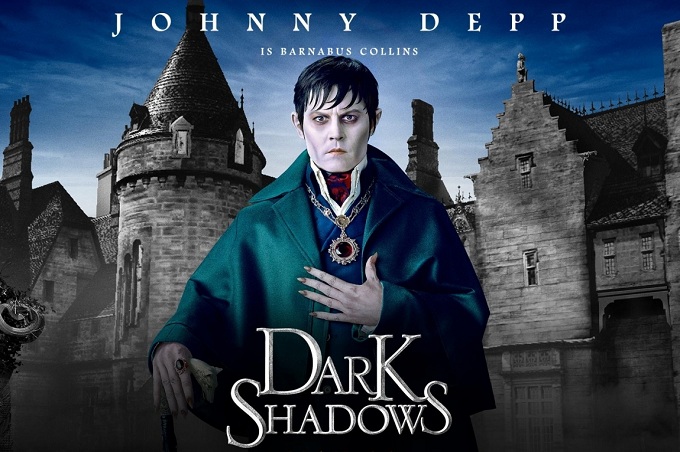
The Plot:
18th century gentleman Barnabus Collins (Johnny Depp) lands himself in supernatural trouble when he scorns the advances of a seductive young witch Angelique (Eva Green). After losing his parents and the true love of his life, he is cursed to become a vampire and buried alive for nearly 200 years. Emerging into the bizarre era of 1972, Barnabus resolves to restore the fortunes of his remaining Collins family descendants while seeking revenge and an end to his curse.
The Good
Tim Burton is a director with a unique style and distinctive visual flare. Dark Shadows offers him the perfect opportunity to pay homage to both of the elements which have so clearly inspired him, combining 1970s kitsch and classic gothic horror. There is something gleefully silly about juxtaposing ghosts, witches and vampires with lava lamps and The Carpenters. Adding a well-placed Alice Cooper cameo to the mix is also a nice touch.
Dark Shadows marks the 8th collaboration between Burton and his magnificent muse Johnny Depp. Depp remain one of the most mesmerizingly charismatic actors alive today. Universally adored he’s capable of carrying entire films on the back of his own stellar performances. Sit through the Pirates Caribbean franchise for a dramatic illustration of this.
Whilst Depp is on predictably fine form as polite and reluctant vampire Barnabus, luckily this time he can also rely on a strong supporting cast that includes the like of Chloe Moretz and Michelle Pfeiffer.
Eva Green deploys all her considerable other worldly charms playing a lusty villainous witch. With bleached blonde hair, piercing eyes and startling curves she manages to be convincingly scary and sexy simultaneously.
The Bad
Tim Burton’s trademark visuals and fondness for blood drenched campy horror is an acquired taste. It’s won him an army of devoted fans, but it does also alienate those who lack a taste for the dark side.
Compared to Burton’s previous work, Dark Shadows is perhaps most similar in tone to Sleepy Hollow, veering regularly between melodramatic horror and slapstick comedy. Some people may find the sudden contrast a little jarring. Although the film can claim a fair few laugh out loud moments, they’re almost exclusively courtesy of Johnny Depp. The film’s frights also fall flat. There’s no shortage of blood, murder and monsters but it’s all too silly to ever be anything approaching scary.
Dark Shadows doesn’t make full use of its glittering cast either. Helena Bonham Carter and Johnny Lee Miller in particular are given little opportunity to make meaningful contributions. In fact, Johnny Depp’s Barnabus is the only member of the pale faced Collins clan who generates any real intrigue.
The film’s increasingly outlandish climax works its way through mostly predictable plot twists and witch bashing action that lacks memorable magic. The last minute addition of shotguns, spells and all sorts of unexpected monsters feels more overblown than satisfying.
The Ugly Truth
Dark Shadows will be another slice of Goth genius for those that adore Tim Burton’s work, but if you’re not already a fan this certainly won’t be the film that finally wins you over. Whatever your disposition, Johnny Depp’s supernatural charms and Eva Green’s sumptuous smouldering should keep things watchable and mostly enjoyable.
American Pie Reunion Review
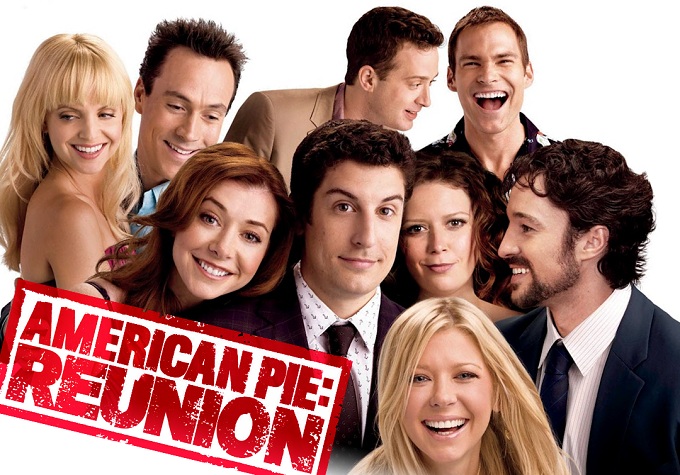
The Plot
Jim, Kevin, Finch, Oz and Stiffler reunite in East Great Falls, Michigan for their high school reunion. 13 years after the first American Pie film, they all find themselves facing up to the pressures and uncertainties of adulthood. Perhaps another dose of cringe worthy calamity will help them finally learn how to deal with marriage, kids, jobs and love.
The Good
There is something nice about seeing Eugene Levy (Jim’s Dad) finally joined by the rest of the original cast, after suffering through several atrocious straight to DVD sequels on his own. There’s only so long one man can carry a comedy franchise on his quizzically raised bushy eyebrows.
While all the old characters are busy enjoying a friendly reunion and predictable hijinks, it’s fairly interesting at least to see how kind father time has been to their familiar faces and bodies. Fortunes are mixed.
Although American Reunion has little genuinely new territory to explore it does have one potential ace up its sleeve, a long overdue meeting between Jim’s Dad (Eugene Levy) and Stiffler’s Mom (Jennifer Coolidge). It’s just surprising it took the franchise this long to take advantage of pairing two of its most successful elements in the same scene.
The Bad
Whilst the misguided mistakes and embarrassing escapades of sex obsessed teenage boys is a ready source of easy comedy, the jokes have worn pretty thin by the time everyone’s creeping into their obvious thirties.
Given the fact the main theme of the film is about dealing with maturity it’s ironic that so much of the humour is entirely dependent on having kept the characters forcibly regressed and artificially immature. The obnoxious return of Sean William Scott as Stiffer is a prime example, sure to divide opinions between those who love or loath his foul mouthed antics. The storylines for several of the returning cast do feel especially forced and unnecessary.
It’s fair to say the acting prowess on display varies wildly, ranging from fondly enthusiastic to painful paycheck chasing. Chris Klein, Thomas Ian Nicholas (Kevin) and Tara Reid are some of the worst offenders. Ideally you want the audience to laugh at the contrived awkward situations, not the casts’ attempts to emote. Only Alyson Hannigan can claim to have escaped the franchise with any degree of real success and with good reason.
American Reunion relies a little too heavily on affection for the franchise which won’t necessarily exist among uninitiated teens and more discerning older audiences.
The Ugly Truth
Nostalgic fans of the early slices of American Pie will welcome the return of all the familiar characters and the franchise’s trademark brand of disastrous sexual misadventures. New audiences unfamiliar with the past films may judge American Reunion more harshly by its obvious faults. It is a dramatic improvement on the most recent DVD offerings but remains at best a guilty pleasure.
Avengers Assemble Review
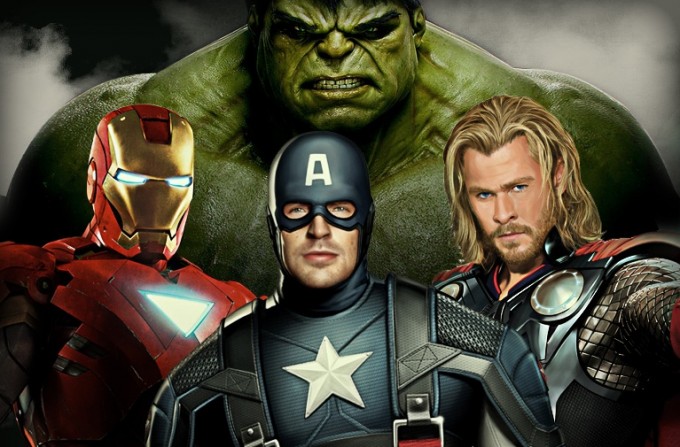
The Plot
After nearly a decade of anticipation and groundwork in other Marvel films; superheroes Thor, Captain America, Iron Man, The Incredible Hulk, Black Widow, Hawkeye and Nick Fury team up to take on mischievous demi-god Loki who has a plan to use a mystical all-powerful energy cube to unleash an evil alien army on earth.
The Good
Marvel fans will be delighted to finally see this film become a reality and appreciative of how closely it has stuck to the original comicbook material.
With TV shows like Buffy and Firefly, Director Joss Whedon has always demonstrated a great skill for handling ensemble casts. Once again, he gets the balance pretty much right between the formulaic demands of action adventure storytelling and well placed comedic relief. The bickering banter between our heroes keeps audiences entertained between the more explosive sequences.
Avengers has a glittering array of all-star Hollywood talent to draw on with the likes of Robert Downey Jr, Samuel L Jackson, Chris Evans, Scarlett Johansson and Chris Hemsworth all jostling for the chance to showcase their costume clad charisma. Combined with glossy production values this ensures it’s always easy on the eyes.
Tom Hiddleston’s effectively malevolent turn as Loki is another major asset for the film, as is Mark Ruffalo’s performance as the not so jolly green giant The Incredible Hulk. Ruffalo in particular deserves credit for being the third actor to play the troubled character on the big screen but the first to truly win over audiences.
The Bad
It’s virtually impossible for any film to live up to the weight of unprecedented hype and expectation heaped upon Avengers Assemble.
With so many characters and plot points to juggle it’s perhaps unsurprising that the film suffers a little from a slow moving first half. Despite a sluggish start, those unfamiliar with all the other Marvel films may still struggle to follow things.
This film confidently assumes its audience is fully aware of all its iconic characters and their recent adventures. If you haven’t already seen Iron Man, Captain America or Thor it’s probably worth investing the time before you see Avengers. With so many heroes sharing the limelight in this film there’s little time for any real depth to their individual stories.
In sharp contrast to the grounded realism of Christopher Nolan’s flawless Dark Knight Saga, Avengers is also unapologetically cartoonish. Our heroes fly around on an invisible airship doing explosion packed CGI battle with bad guys. The action, dialogue and special effects are all geared towards a younger blockbuster audience.
Though Loki is a great villain, unfortunately his army of non-descript alien baddies seemingly aren’t much of a threat to our impervious and all powerful team of good guys. Even Scarlett Johansson can easily pummel them into submission armed only with her fists, thighs, and a skin tight catsuit. A more convincing sense of menace and danger might have given all the enthusiastic 3D action scenes another dimension.
The Ugly Truth –
Avengers took nearly £16million in just its first four days at the UK Box office and has already taken a hulk sized $642 million worldwide. Success and popularity alone aren’t sufficient reason to watch any film, but ‘event’ movies of such impressive scale don’t come around that often. Avengers does deserve to be seen on the biggest screen you can find.
If you have been left uninspired or disappointed by past Marvel films you might have a similar reaction to Avengers, but existing fans and most newcomers should be left thoroughly satisfied.
* Stick around during the end credits for a few quick glimpses of what’s in store for the inevitable sequel.